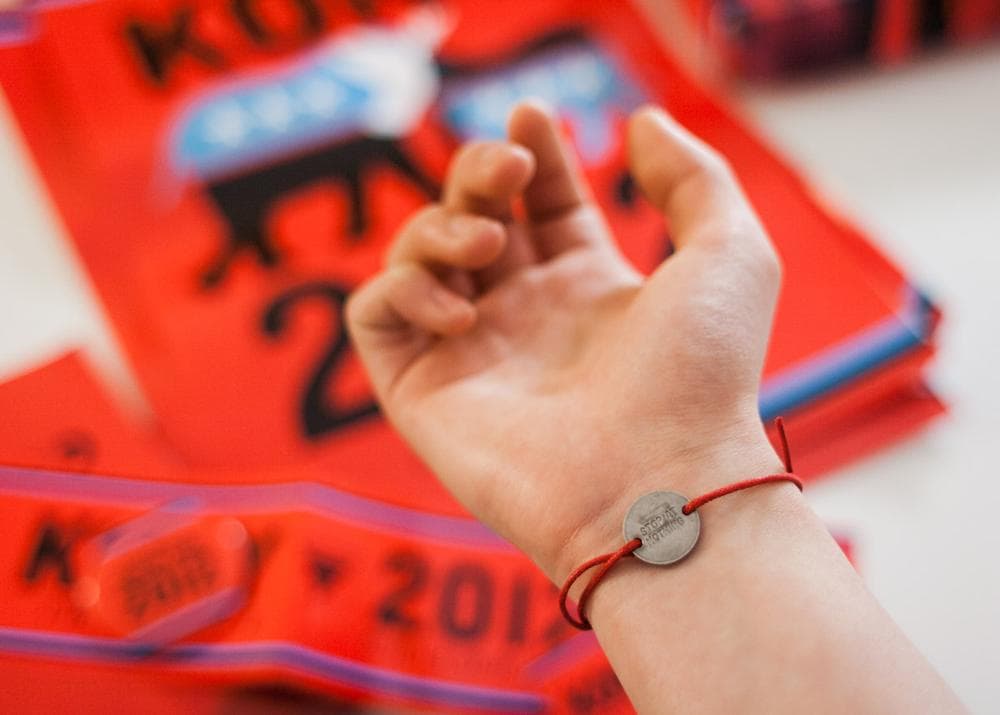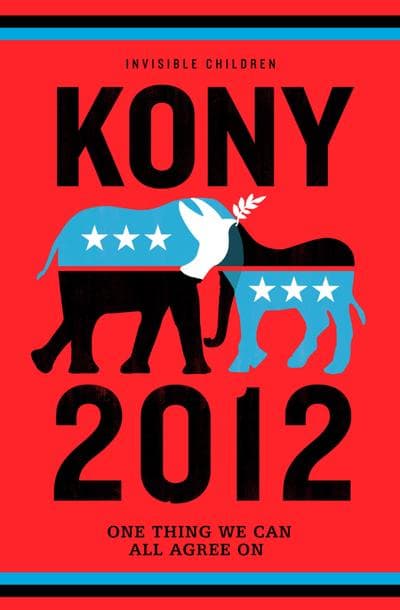Advertisement
After 'Kony 2012,' Students Eager To Learn About Central Africa
Resume
The film makers behind "Kony 2012," a short documentary that went viral earlier this year, claim that the movement's campaign to arrest the Ugandan war criminal Joseph Kony will expand at the end of this week.
"The rest of the world will go to bed Friday night and wake up to hundreds of thousands of posters demanding justice on every corner," Jason Russell says in the video.
Russell directed and narrated the short documentary for the nonprofit advocacy group Invisible Children. The 30-minute documentary racked up more than 100-million views in six days.
The video has stirred controversy for over-simplifying the issues, but thousands of young people who watched it were energized. That presented a challenge for school teachers who weren't prepared to teach students about the Ugandan civil war. As a result, Boston University's African Studies Center held a workshop last weekend to help teachers deal with those challenges.

About three dozen people gathered for the workshop, including Boston-area teachers and some high school students, including 17-year-old Hudson High School junior Jenn Hureau.
"I remember going on Facebook one day and I think probably every other one of my friends had it posted and everybody was talking about it which was, you know, really, really awesome to have everybody come together and be like, 'We need to do something,' " Hureau said. "We need to come together and help do something about it."
Hureau's world history teacher Ken High also attended the workshop.
"They saw it initially and then came to me to say, you know, 'What should I know about this? Teach me more,' " High said. "And so that's why I was excited about this presentation today because I told my students, 'I don't know much about it either. Hold on, I'm going to find out more, and then we'll discuss it.' "
The African Studies Center Outreach Director Barbara Brown, who's been teaching teachers for more than two decades, started off the workshop with a survey: How many of you have been asked by your students about "Kony 2012?" Nearly everyone raised a hand.
"Ha! Yes, now how many of you have already had discussions in your class?" Brown asks.
This time, just more than half raise their hands.
Professor Tim Longman, the director of BU's African Studies Center, tells the group that he found the video "deeply troubling" because, while it brings attention to the children who were abducted and turned into soldiers in Kony's Lord's Resistance Army, it also depicts Ugandans as passive victims.
"That's probably the biggest thing that bothers me about it — the depiction of Africans as savages, incapable of helping themselves," Longman said. "And then what we really need is a bunch of white kids from the United States to go and save them."
To have something where the initial excitement came from the kids was really helpful. So, though the film is not perfect, I think it did do a lot of good in getting kids interested.
Caitlin Murphy, teacher
Research scientist Patrick Vinck, with the Harvard Humanitarian Initiative, says while he supports arresting Kony, that would not translate into social justice for Ugandans. And the film's goal of getting the U.S. to help the Ugandan military is risky because Kony is believed operating in a different country.
"All of these groups have been and are recognized to have committed human rights violations," Vinck said. "Providing them more weapons is just not going to solve the conflict."
Caitlin Murphy, who teaches a social justice course at Hudson High School, says for all of the film's flaws it was exciting to see students caring about an issue and motivated by the idea that they could create change.
"To have something where the initial excitement came from the kids was really helpful," Murphy said. "So though the film's not perfect, I think it did do a lot of good in getting kids interested and involved."
Throughout the half-day history lesson on Uganda, the workshops organizers emphasized that it's possible to maintain students' interest and excitement while giving them a more sophisticated understanding of the complex situation in Central Africa.
Reporting by WBUR's Rachel Rohr
Guest:
- Barbara Brown, outreach director for the Boston University African Studies Center
- Justin Reich, Fellow at Harvard's Berkman Center for Internet and Society; Co-Director of "Ed Tech Teacher," a professional development consultancy for schools
More:
This segment aired on April 19, 2012.